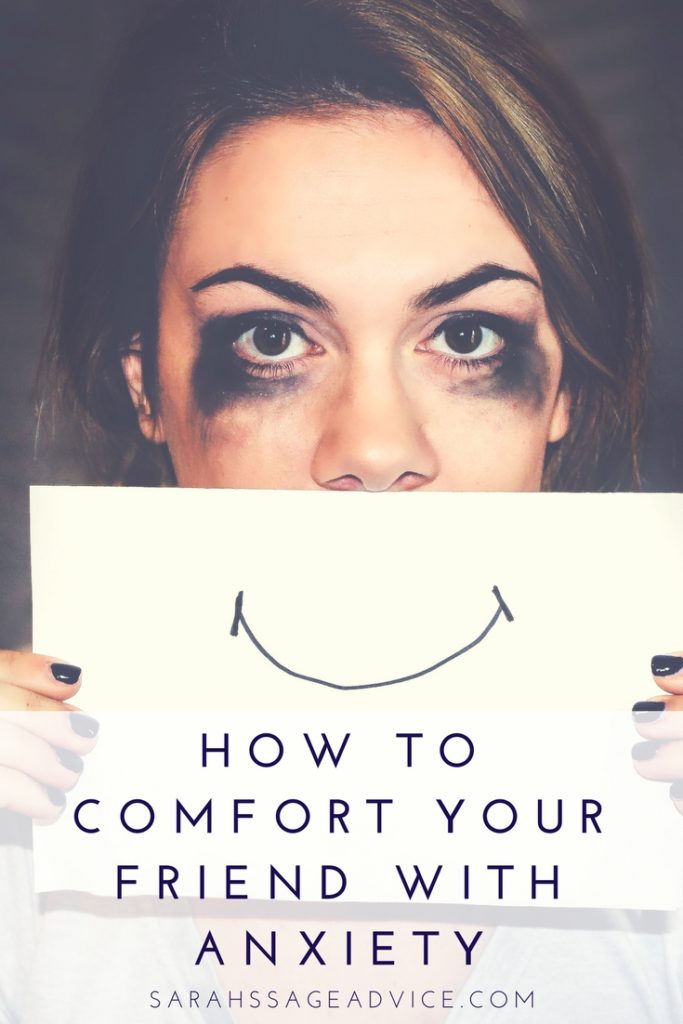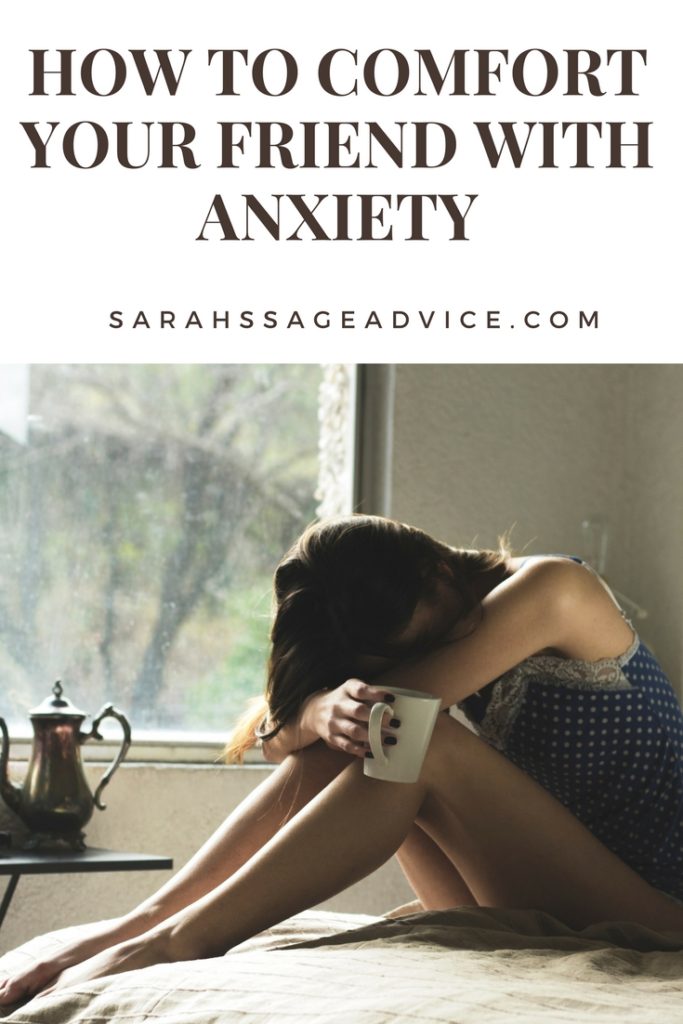Hey everyone! I’m Jessa, author of Happily Ever Hillmann. If you don’t know me, you wouldn’t know that I have sometimes debilitating anxiety that cripples me from leaving my house (or leaving wherever I’m at when a panic sets in). If you don’t know me, I seem relatively calm, friendly, and at ease in social situations. But, that’s the difficult perception of people that suffer with anxiety.
For years now I’ve struggled with keeping my panic attacks under control.
When they were at their peak and I was seeking counseling, I opened up to close family and friends about what I had been going through. The reactions were mostly encouraging, but unfortunately not everyone I talk to about my anxiety disorder responds positively.
If you have a friend or family member with an anxiety or panic disorder, my three tips here will give you a good idea of what to expect and how to respond positively when you sit down and talk to them about what they’re battling.
Be supportive.
Tell your friend that you still love them, regardless of this difficult thing they’re struggling with. Let them know that you’re available, that you don’t judge them for something they feel like they have no control over. Don’t tell them that it’s not a big deal, or that they’re just stressed over work/home life/(fill in the blank here.) There’s a BIG difference between short term stress, and long term anxiety.
It’s important to be open-minded when talking to your friend or family member, especially if having an anxiety disorder is something you are completely unfamiliar with.
We understand that to anyone else, what we battle everyday seems strange, or unnecessary.
But to your friend, it’s a very serious thing that disrupts their everyday life.

I remember one time in particular talking to a woman who was SO discouraging. I had scheduled a counseling appointment about 20 minutes away from my house, but part of my anxiety disorder involved a fear of driving, so I was having a really hard time getting ready for the appointment. I eventually waited so long that I had to call and push the appointment back.
As I explained to the woman at the front desk that I was unable to come because I was freaking out, she read my file and said, “ Everyone deals with this. You just need to come on in.” Seriously? Everyone has panic attacks before they get on the road for a twenty minute drive? I couldn’t get over the fact that she said that to me. I made it to the next appointment, and hyperventilated through tears the entire time.
You never know how powerful your words can be to someone with this disease, both positive and negative.
Help them, but on their terms.
Don’t pressure your friend to hang out if they’ve already tried to tell you no. If they seem interested but also hesitant, ask what you can do to help them feel at ease. Don’t rush them to respond, to be social, or to “be better.” Everyone has their own way of coping, and it is a process that has to happen on their terms – not yours.
Keep having conversations about their struggles.
Try to keep in mind that even opening up about the very sensitive triggers we have to our anxiety is very difficult. Each of us that shares our struggles opens ourselves up to criticism, judgement and ridicule. If your friend is open to advice, encourage them to talk to their doctor if they haven’t already. It’s important to know for sure what kind of anxiety disorder they’re showing symptoms for, and finding appropriate treatment.

It is not helpful to tell your friend that they need to “deal with this,” like it’s a easy check off on their to-do list. If it was, wouldn’t they have checked it off already?
For some, speaking to a professional will help tremendously. Finding a support group, or close network of friends that will listen, is important as well. Medication can be used to manage symptoms of an anxiety or panic disorder as well, but will not “cure” anyone of the disorder completely.
Do your research.
More and more, people we see on the television, in music, and on the news are opening up about their anxiety – and that’s awesome! But, there’s still a lot left to do in the way of educating people about this particular mental illness. Did you know that 1 in 5 people will be affected by mental illness in any given year? That’s someone in your group of friends. Someone in your extended family. Maybe even someone in your immediate family. That’s someone that you work with, see at the grocery store, someone that you care for.
You might be surprised to know that anxiety and depression often times go hand in hand. Nearly half of those diagnosed with depression are also diagnosed with an anxiety disorder (read more from the Anxiety and Depression Association of America). Research the symptoms and treatment, and be a support system to your friend or loved one.
A lot of what is misunderstood about anxiety disorders is that it’s something that is easy to shake off.

About a week ago, my husband and I were talking and I mentioned that one of the things I really fear is my daughter growing up and having an anxiety disorder like I do. I wouldn’t wish it on anyone, but especially my daughter. I cried to my husband and told him how I wish I could just turn it off. I wish I didn’t have unpredictable panic attacks, and that they didn’t keep me from traveling or enjoying myself with friends. I told him that I would be willing to do almost anything to rid myself of this disease. Honestly, if my doctor told me that there was a 100% chance that Electroshock Therapy would rid me of my anxiety disorder, I would submit myself to physical pain to never struggle with this again.
It’s nothing that we want to suffer with.
It’s not easy to “turn off.”
Love your friend, love your family member, love the people around you with mental illness. Truly, that is the one thing that will help you in any conversation with someone with an anxiety or panic disorder. Whatever you do or say, do it in love.
Thanks for reading my story today, and thanks to Sarah for the feature!
Jessa


SaveSave


